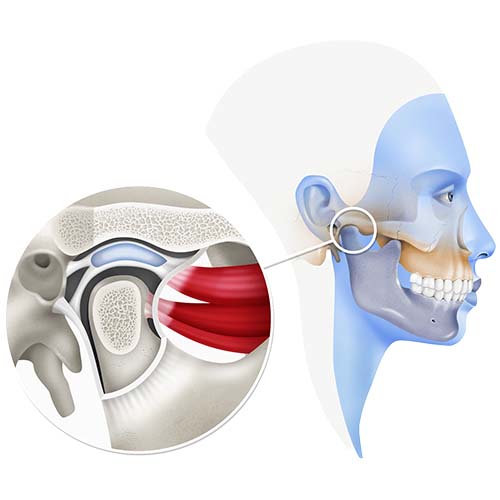Jaw Pain On One Side - Causes
Jaw pain is one symptom that can be caused by many different oral issues. If you do have jaw pain, you should resist trying to diagnose it yourself and get professional medical help.Jaw pain on one side is one of the most common oral issues. Most of the time, jaw pain is caused by some of the following: toothache, sinus infection, ear infection, gum infections, dental abscess, temporomandibular joint disorder (TMJ), bruxism (a clenching and grinding of the teeth), and temporomandibular joint disorder related symptoms. If you are experiencing jaw pain on one side, you should seek professional medical help. However, there are some basic tests that you can do to determine if jaw pain is the problem and some home remedies that you can try to relieve your pain. So whether your jaw pain is mild or severe, don’t hesitate to get help!
Tests that Might Detect Jaw Pain
Jaw pain is a common problem that can be quite debilitating. If left untreated, the pain can spread to the other side of the jaw and cause other health problems. So, what are the possible causes of jaw pain on one side? There are a number of tests your doctor might perform to determine the cause. Some of these tests include an X-ray, MRI, and CT scan. Depending on the results of these tests, your doctor may prescribe treatments to relieve jaw pain. In some cases, the pain may be caused by a dental problem or disorder, and relief can be achieved through oral surgery or oral hygiene measures. If you’re experiencing jaw pain on one side, it’s important to speak with your doctor as soon as possible. By doing so, you’ll get the appropriate diagnosis and start the process of relief.
TMJ Disorders
The Temporomandibular joint (TMJ or TMD) works sort of like a hinge that connects your jaw to the skull. Symptoms in TMJ patients can often include pain, or tenderness in the jaw and surrounding muscles.
Treatments for TMJ Include
- Pain and anti-inflammatory medications
- Tricyclic antidepressants in low doses
- Muscle relaxants
- Mouth guards
- Physical therapy
- Botox or corticosteroid injections
- Surgery

Sinusitis
- Headaches
- Nasal congestion or runny nose
- Cough
- Fever
- Trouble smelling or tasting
Treatments For Sinusitis Include
- Nasal spray
- Antibiotics
- Pain relievers
- Surgery to remove an infection, diseased tissues, or obstruction
Oral Health Problems
- An impacted or abscessed tooth
- Infections
- Gum disease
- Cavities or tooth decay
- Wisdom tooth development
- Crooked or missing teeth
- Jaw abnormalities
- Teeth grinding (bruxism)
Injury (Trauma)
- Move dislocated jaws back into place
- Place metal plates in the damaged bone to help it heal
- Wire the jaws shut to keep damaged bones in place during the healing process

When To See A Dentist For Jaw Pain
Talk to a dentist or healthcare provider if your jaw pain doesn’t go away after a few days, or if you experience:
- Facial pain or swelling that doesn’t improve after a few days
- Worsening pain
- Trouble opening or closing the mouth or chewing
- A bad taste in the mouth
- Sensitive, swollen, red, or bleeding gums
When Is Jaw Pain An Emergency?
- A high fever
- Extreme pain or neck stiffness
- Vision changes
- Severe facial swelling
- Shortness of breath
- Redness or swelling around the eyes
- Nausea and vomiting
- Severe bleeding
- Intense pain that goes away, followed by a burst of salty liquid that smells or tastes bad
- Pain in the arms or shoulders
- Light-headedness or confusion
- New, sudden pain
How Do I Diagnose Jaw Pain?
- Asking about your symptoms
- Examining the jaw
- Listening to and feel the jaw while the mouth closes and opens
- Taking X-rays or CT or MRI scans of the jaw, face, and/or neck
- Running blood tests
- Taking a swab or cultures from the nose and send them away for testing
